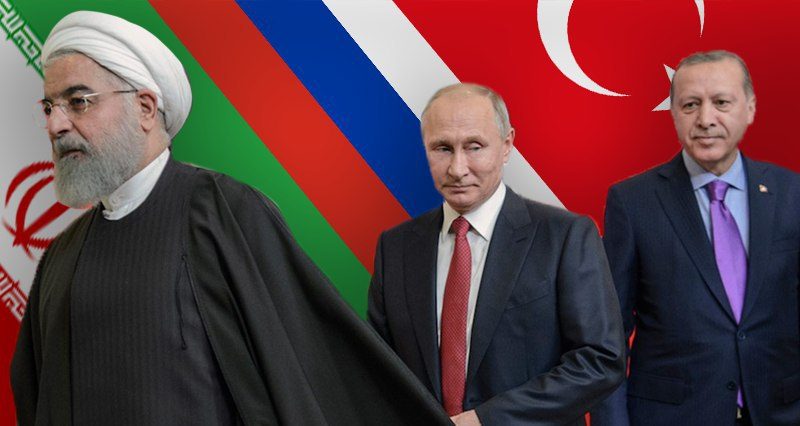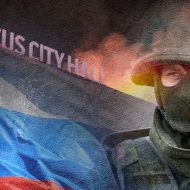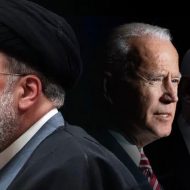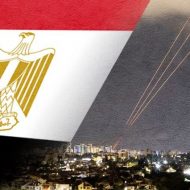On July 1, Turkish President Recep Tayyip Erdogan held talks with his Russian counterpart Vladimir Putin and Iranian leader Hassan Rouhani. The meeting was held in the format of a video conference.
Against separatism
As a result of the meeting, the heads of Russia, Iran and Turkey adopted a joint statement in which they reaffirmed their determination to enhance the tripartite coordination in accordance with existing agreements, noted their strong commitment to the sovereignty, independence, unity and territorial integrity of the Syrian Arab Republic, and expressed their rejection of the illegal seizure and transfer of oil revenues, which should belong to Syria.
The participants in the negotiations also reaffirmed their determination to continue to cooperate for the final elimination of ISIS, Jabhat al-Nusra and all other terrorist groups, and also opposed Israeli military attacks in Syria.
As the document published on the website of the President of Turkey notes, Turkey, Iran and Russia together “rejected in this regard all attempts to create new realities on the ground under the pretext of combating terrorism, including illegitimate self-rule initiatives, and expressed their determination to stand against separatist agendas aimed at undermining the sovereignty and territorial integrity of Syria as well as threatening the national security of neighboring countries”.
It should be noted that in recent months the United States and France have actively promoted negotiations on the question of “Kurdish Unity” between the Democratic Union Party (PYD) and its military wing YPG and the Kurdish National Council in Syria, ENKS. The YPG is directly linked to the terrorist Kurdistan Workers Party (PKK). Previously, The ENKS was considered quite loyal to Turkey. However, Ankara strongly opposed the negotiations, considering them an attempt to whitewash the YPG and to deprive Syrian Kurds of any political alternative to the PYD regime, which the US relies on to push its interests in the region.
It is especially noteworthy how the Turkish president spoke about Syria – with warm and showing friendly attitude:
“Preserving Syria’s political unity and territorial integrity, restoring peace on the ground and finding a lasting political solution to the conflict are our top priorities. I am of the belief that we will, inshallah, maintain this with today’s meeting. As Turkey, we have stood with our Syrian brothers and sisters since the beginning of the conflict. We have embraced millions of Syrian, regardless of their ethnic identity, roots and faith. We have exerted great efforts in order for Syria not to be divided in the hands of terrorist organizations. We have prevented humanitarian tragedies and separatist aims by actively intervening when need be”.
Against the United States
One of the points that the leaders of Turkey, Russia and Iran drew attention to was the unsatisfactory assessment of the American presence in Syria.
Astana Formatında Türkiye – Rusya Federasyonu – İran Üçlü Video Konferans Zirvesi https://t.co/mgNz4LYxpK
— Recep Tayyip Erdoğan (@RTErdogan) July 1, 2020
Russian President Vladimir Putin invited Rouhani and Erdogan to develop additional counter-terrorism measures in the Syrian Arab Republic (SAR).
During the meeting, the Russian president stressed that the most difficult situation is in the territories beyond official Damascus’ control, in the Idlib zone of de-escalation and in the north-east of the republic, “where the activity of militants” of the “Islamic State” has significantly increased. However, it is in this zone that American troops and YPG-dominated Syrian Democratic Forces are present.
Speaking about the situation in Idlib, Putin noted that the Kremlin maintains close cooperation with Turkey “in order to implement the reached agreements of the Sochi Memorandum of September 17, 2018 and its additional protocol of March 5 this year”.
Hasan Rouhani, in turn, said the United States is using the natural resources of the Arab Republic while pretending to be fighting terrorists.
Iran will never do to Western governments what they are doing to our people
The significance of the summit
Negotiations between the leaders of Turkey, Iran and Russia were announced only the day before. The very fact that they were held shows that the Astana process, despite the problems in Syria, is alive. It is indicative that all three countries have managed to find common points expressed in the joint declaration. This declaration expresses the unified approach of Turkey, Iran and Russia to the Syrian problem, that is based first of all on preserving the territorial unity of the country. That unity guarantees the unity of neighboring countries as well, and may serve as a tool to halt the ongoing destabilization process in the entire region.
Of particular note was the expression of common will to combat terrorism in all its forms. This indicates amped up efforts against pseudo-Islamic extremism (not only Hurras-ad-Din, but also Tahrir al-Sham), as well as the attempts of the US to use PKK terrorists for their own purposes. The “illegitimate self-rule initiatives” that the joint declaration condemns are exactly what pro-American Kurdish militants are engaged in in north-eastern Syria. However, Islamists in Idlib are also putting forward the same self-governance initiatives, thus aggravating the divide within Syria.
It is important that both Turkey, Russia and Iran have spoken out clearly against all such initiatives. Now it is important that the countries observe the agreed terms of the common declaration and fight the forces trying to divide Syria – both Islamist and open Kurdish pseudo-left separatists. Even if such forces seem useful in the short term, in the long term, support for these factions could easily lead to mutual misunderstanding and provide fertile ground for destructive interests engineering “controlled chaos” in the region.









Leave a Reply